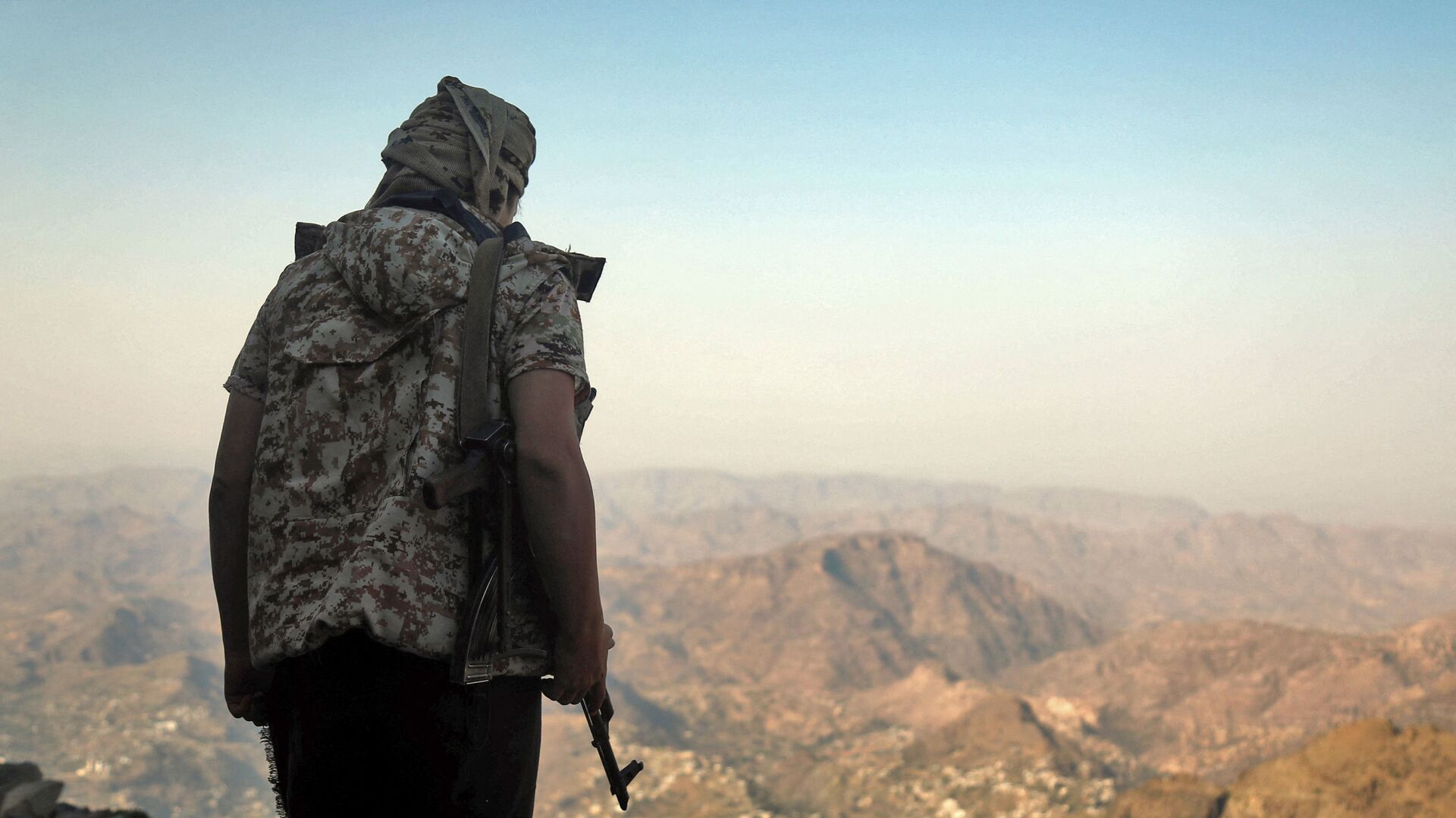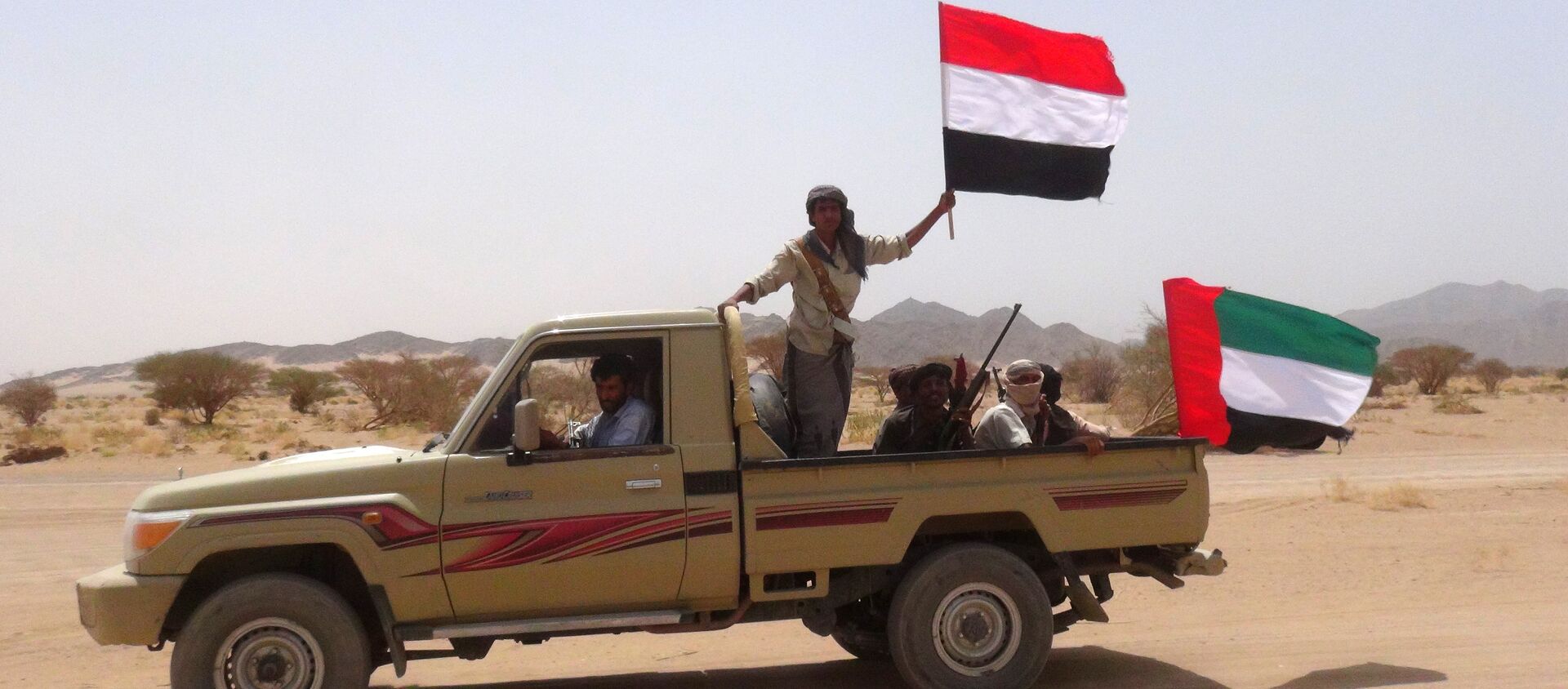Tensions between Yemen and Saudi Arabia are on the rise as recent days have seen an escalation of hostilities between the two nations.
Several days ago, it was reported that the Yemen-based Houthi rebels had launched two missiles into the south of Saudi Arabia, an attack that was averted. And on Monday, Riyadh accused the militia of targeting their two oil facilities, something that pushed oil prices up and provoked criticism from the Biden Administration.
Strikes Will Go On
But for Hussein Al Bukhaiti, a Yemeni journalist believed to have ties to the Houthis, the recent series of confrontations are nothing more than just a "retaliation for the six years of war and blockade" and a legitimate answer to the deeds of Saudi Arabia.
The Houthis accuse the Kingdom of wreaking havoc on their country. War-torn Yemen has been relying on food and fuel supplies for years but the ongoing Saudi blockade that has halted these provisions is believed to have led to an economic catastrophe and famine.
According to reports, since the beginning of the year, Saudi warships have prevented any oil tankers from arriving at the Port of Hodeidah, from which supplies, including fuel and food, are typically distributed to the rest of Yemen.
Riyadh, for its part, is claiming that the air and naval blockade is a legitimate measure that was implemented in 2017 following the Houthi attack on the King Khalid International Airport of Saudi Arabia, and that it was aimed at preventing such assaults from taking place in the future.
America's True Face?
Meanwhile, while the two sides keep trading accusations, the US is urging the Houthis "to stop attacking, and start negotiating"; reports suggest that the Biden administration is determined to bring the war to an end.
As a step in that direction, Washington has already taken some measures to smooth the tensions. In February, the US removed the Houthis from its list of terrorist organisations, where they were placed under former President Donald Trump.
Recently it was reported that US officials met with Houthi representatives in a bid to push for the end of hostilities, allegations denied by the rebel movement.
However, Al Bukhaiti is sceptical about these and other measures the US is taking bringing about a much-needed resolution to the conflict.
"There is no trust in Washington. Their foreign policy doesn't change. The only difference is in the faces. After all, the war that was declared on Yemen erupted during the tenure of [former president] Barack Obama, a person who was given a Nobel peace prize and the one, who sealed the largest military deal with the Saudis and the Emiratis."
This is the reason why Al Bukhaiti is certain that Biden will not betray the American establishment's approach towards Yemen and the current US efforts to pose as the region's peace mediator are no more than a ruse, determined to "justify" the Saudi war against the Houthis.
"When the Houthis rejected that ultimatum, [saying no progress was possible without the removal of the blockade], the US changed its stance, presenting them as an element attempting to hamper Biden’s peace efforts," he added.
Soon after that alleged U-turn, Washington announced it would impose fresh sanctions on two Houthi militants, holding them responsible for destabilising the country and causing famine and destruction.
Al Bukhaiti sees these sanctions as yet another tool aimed at "blackmailing" the Houthis and believes these measures are not an indication that the war will soon be over.
"For the war to end, the Saudi-led coalition should stop their strikes against Yemen. They should lift the blockade. And as long as these demands are not met, attacks against Saudi oil infrastructure will continue."




